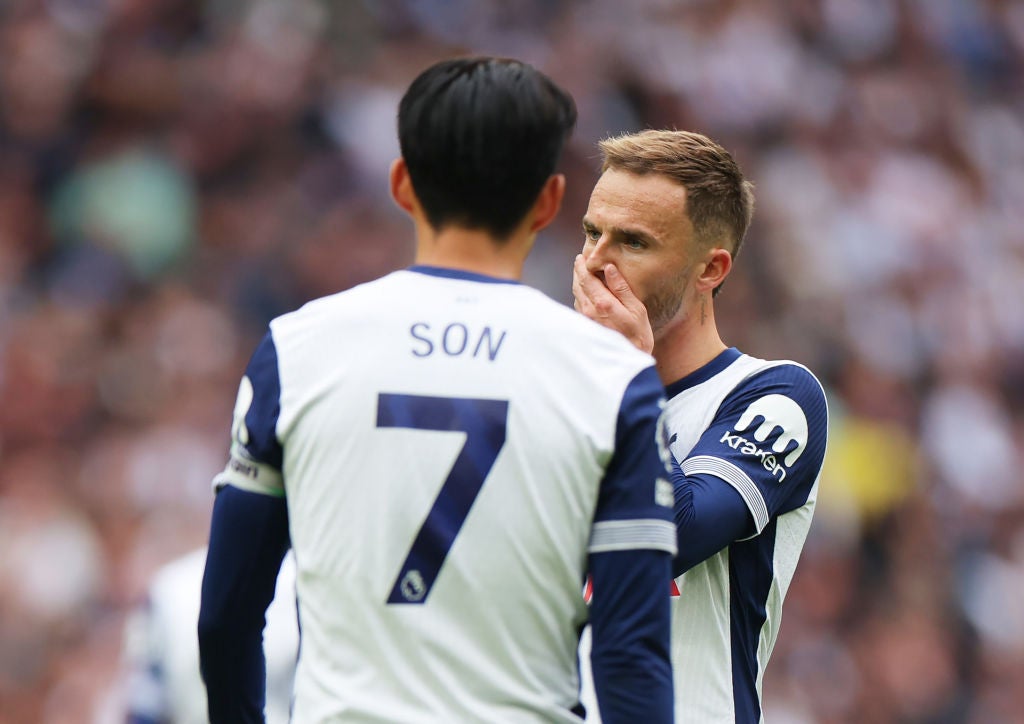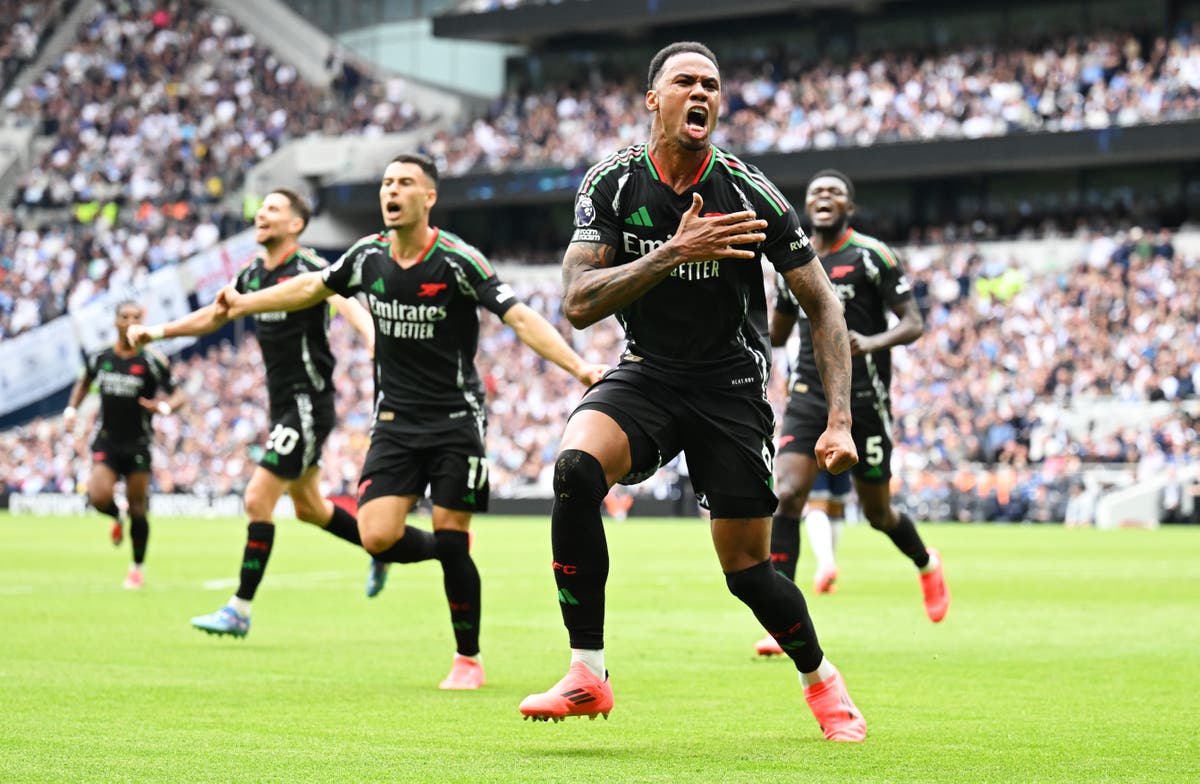A north London derby so predictable that, well, it could have been a set piece. You could see everything lined up, right down to Ange Postecoglou’s complaints about a “narrative” after a 1-0 defeat. Tottenham Hotspur played a lot of attacking football but did little with it; Arsenal defended superbly before a set piece settled the game.
Even the manner of the goal was as rudimentary as you could get, Bukayo Saka swinging in a delivery that Postecoglou himself called “spot on” and Gabriel heading in unchallenged from close range. Arteta beamed afterwards with the satisfaction of a plan that had come together, especially after so much disruption. He even spoke of changing that idea so many times, but it helps when you can be so sure of other key elements.
While Postecoglou wearily answered questions about Spurs’ set-piece frailties while insisting he “doesn’t care” about how this perception has grown – something he himself has fostered – Arteta was lauding the work of Nicolas Jover as “the best in his field, the best in any field”. Arsenal’s set-piece coach, appointed in 2021, has been crucial in helping the team develop this hugely dangerous weapon in their attack. Gabriel’s goal made it 42 from such scenarios in three years, the most of any team in Europe’s top five leagues. The preparation is so good that players can visualise these moments and see them manifest.

All of this was ironically a vision that materialised from a set of circumstances that could well have led to a very different version of this game. Without their first-choice midfield, and after the way the Brighton 1-1 draw had played out, it was easy to see Arsenal dropping more points to fall five behind Manchester City. A good old-fashioned crisis could have set in. Instead, that is what Spurs are facing because Arsenal stood up in so many ways, especially defensively. That was witnessed so directly in the match-winning goal. Cristian Romero lost Gabriel, who rose to head in a beautifully flighted corner from a few yards out.
It was all so easy, albeit thanks to that hard work but also granite-hard players. That’s what Arteta has turned this team into, even if an element of imagination was missing without Martin Odegaard. The manager spoke afterwards about players who “are hard, have a thick skin” and who were only “hungrier and hungrier” to play when they kept getting bad news about absences during the week.
Spurs never looked like getting into Arsenal’s area so easily, after the energy from an admittedly impressive early burst dissipated. Even then, William Saliba made one brilliant challenge to completely consume Dejan Kulusevski’s space. It was to be a sign of what was to come. Any time Spurs got close to the Arsenal area, on the occasions when they didn’t make poor attacking decisions, one of Arteta’s defensive players was there to shut it down.
This was the major difference between the teams. As one prominent Spurs figure lamented at half time, Arsenal looked like they knew exactly what they were about. The gameplan and instructions were so clear, even if necessarily simplified. Part of that was down to the opposition.
It’s brutal but, at this point, everyone in the Premier League knows what you’re getting with Spurs. Opportunities at set pieces are certainly among them.
So, while Arsenal became so confident close to their own goal, Postecoglou’s players seemed to panic in the same area. There were so many inexplicable decisions. Virtually every player was responsible for at least one, usually in the form of a bad pass, wrong option or poorly-hit cross. The last example was almost a theme of the game. The home crowd became so anxious about the refusal to shoot that they were soon imploring the players to do exactly that. It was summed up when, for one rare moment, the box opened up for Dominic Solanke, only for the forward to dummy it. Spurs’ main idea seemed to be to get it wide and try something hopeful, which was so easy for Saliba and Gabriel to clear away. Jurrien Timber stood out in terms of his physical presence, too, even if Spurs felt that eventually extended into a foul on Pedro Porro that could have been a red card. Arsenal just looked more commanding.

There is a bigger point there, to go with how Arteta has increased both the physicality and quality of this team. Spurs, by contrast, have leant further into buying mere potential. The wage bill remains so low, relative to rivals as well as the club’s revenue.
That has proven a promising model in football for most of the last decade and has broadly worked for Spurs in transforming them from an inconsistent mid-table club into one that is regularly around the Champions League places. The true difference is still revealed in games like this, though. Spurs were playing against a defence that might just be the best in Europe right now. You couldn’t say their attack is anything close to that level.
Arteta added that, with the absences, he wasn’t going to get into the sort of open game that Postecoglou’s Spurs can be so good at. They weren’t here. So many Tottenham crosses went nowhere. Even Son Heung-min, for so long one of the best performers on the planet, has been off it for some time. There just wasn’t that sense of danger here.
Spurs are left with familiar questions. Arsenal are able to celebrate familiar qualities.

